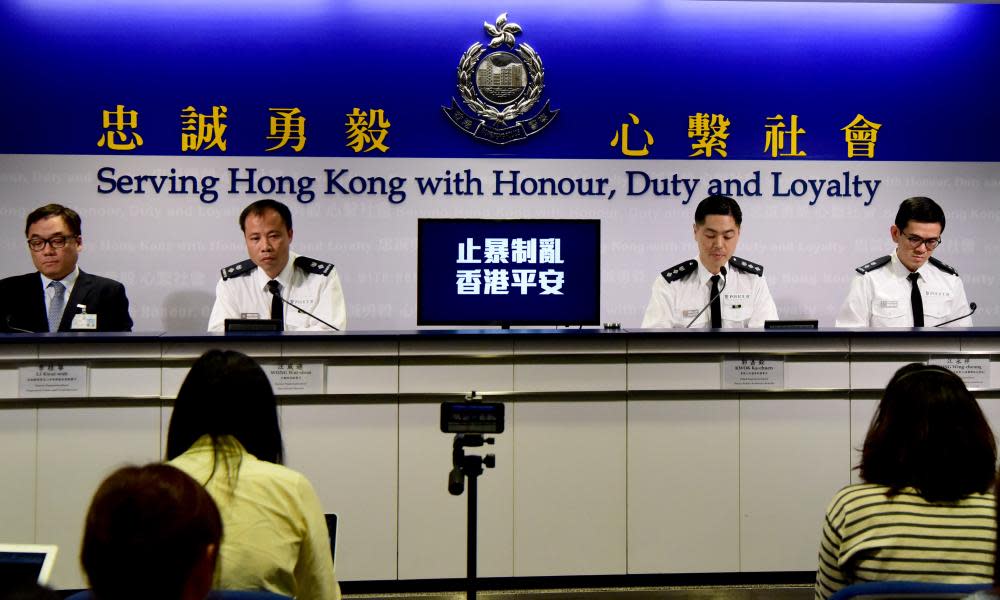The Hong Kong government and police are trying to restore peace

Your editorials (19 November and 13 November) allege that actions by the Hong Kong special administrative region government and the force used by the police have accelerated and magnified the protests in Hong Kong. The government’s political team and the police have worked tirelessly to seek ways to restore peace and order. In the past few months, the chief executive, Carrie Lam, and all principal officials have been meeting various community representatives to hear their views.
The government is open to frank and candid exchanges with groups from all sides. Its priority is, first and foremost, to end the violence and restore calm so as to create a positive environment for dialogue on the deep-seated issues in our society.
Since early June, there have been over 700 public demonstrations, processions and public meetings staged in Hong Kong. Many of them have eventually turned into violent illegal activities, causing major consequences for almost everyone in Hong Kong. In response, the police have carried out enforcement actions in strict accordance with the law. The police have the statutory duty to maintain public safety and public order. Hence, whenever unlawful assembly or violent action occurs, they have to take appropriate actions to protect the life and property of the general public, bring offenders to justice and restore social peace.
Allegations of police brutality will be dealt with thoroughly by the Independent Police Complaints Council (IPCC), a statutory body established under the Independent Police Complaints Council Ordinance. The IPCC has proactively initiated a study on the major public order events in Hong Kong since 9 June and the corresponding actions taken by the police, and established a special taskforce and an international expert panel to this end. The IPCC will announce the progress of the study by phases. The government will closely monitor and carefully study the IPCC’s reports and its recommendations in order to decide on the follow-up action.
Violence is not going to give us any solution to the problems Hong Kong is facing. Our joint priority now as a city is to end the violence and to return Hong Kong to normal as soon as possible.
Winky So
Director general, Hong Kong Economic and Trade Office, London
• I have just read your article titled “My beloved Hong Kong has become a war zone and daily life is full of anxiety” (20 November). In it, Verna Yu details how her life has changed since the protests began. I am also a mum in Hong Kong and I would like to highlight how differently Yu and I perceive what is happening.
I don’t pack a helmet and a gas mask when I go out. I am not a reporter – I work in an office. Before I head out, I check where the protesters are likely to be and I avoid them as they broadcast their planned activities ahead of time.
Yu goes on to say that the “metro was shut down by the authorities”. The metro has been shut in whole or in part on a number of occasions. But “the authorities” did so because of heavy damage caused by protesters. Such damage included setting stations and trains on fire. So, if it were me, I would say that the metro was shut by the protesters.
When Yu is held up by roadblocks set up by protesters, her children “were terrified at the prospect of riot police coming with teargas”. My children continue to have confidence that the police are there to protect them. Are there bad apples in the police? I am sure there are, but that doesn’t diminish the fact that the vast majority of the force are decent people doing their job to keep us safe.
Koh-Ann Chu
Hong Kong
• Join the debate – email guardian.letters@theguardian.com
• Read more Guardian letters – click here to visit gu.com/letters
• Do you have a photo you’d like to share with Guardian readers? Click here to upload it and we’ll publish the best submissions in the letters spread of our print edition

 Yahoo News
Yahoo News 
